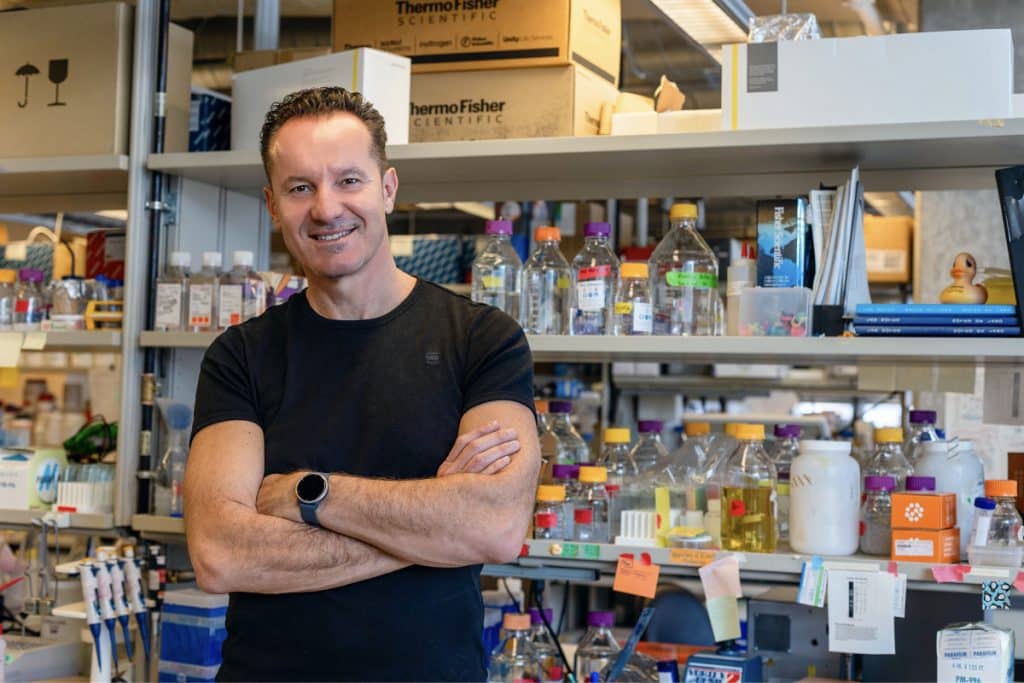Insilico Medicine and University of Toronto Partner to Develop AI Drugs for ‘Undruggable’ Cancer Targets


In Brief
The University of Toronto has partnered with Insilico Medicine to develop AI-powered medical solutions for ‘undruggable’ cancer targets.

University of Toronto’s professor Igor Stagljar entered into a partnership with Insilico Medicine, an AI-driven drug discovery company, to target “undruggable” cancer targets – those which conventional therapeutics have been unable to address.
The lab uses live cell-based assays to test the effectiveness of Insilico’s AI-designed molecules against these undruggable targets.
“As many as 85% of all human proteins are thought to be “undruggable,” which means they cannot be targeted using the standard approach of identifying a binding site and designing a molecule that will bind to that pocket to induce a therapeutic response,” Petrina Kamya, head of AI Platforms and president of Insilico Medicine Canada told Metaverse Post.
“Whatever the cause, data and AI offer a solution. AI can find previously undisclosed targets – such as a shallow binding pocket – and design a new molecule that can inhibit it or design a molecule capable of interfering in the protein-protein interaction using the specific parameters that we set,” she added.
Stagljar’s lab focuses on identifying aberrant protein-protein interactions (PPIs) that contribute to diseases like cancer and he considers it as an attractive option in drug development.
Explaining the role of AI, Igor Stagljaar, the biochemist and molecular geneticist professor at the University of Toronto said AI leverages vast biological datasets and advanced algorithms to identify small molecule inhibitors for challenging targets. AI tools analyze complex biological data like genomic sequences and protein structures, aiding in precise target identification.
“They predict molecule interactions, streamline compound selection, and expedite virtual screening of chemical libraries. Moreover, AI-driven analysis of drug databases identifies opportunities for repurposing drugs, accelerating development,” he added.

Both teams begin with an undruggable target – such as KRAS, one of the most frequently mutated cancer proteins, which has been difficult to drug due to its shallow pocket. Insilico uses its end-to-end AI platform to “imagine” new molecules that are designed to inhibit this difficult target, that are optimized to have characteristics needed to be successful drugs –including metabolic stability, potency and safety.
“We’ve had great success using our platform to design novel cancer treatments using AI. Majority of the 31 AI-designed drugs in our pipeline are in the cancer space – including a KAT6 inhibitor for breast cancer that led to a major license agreement with the Menarini Group, and a USP1 inhibitor, designed for BRCA-mutant tumors also seen in breast cancer, that was the subject of a significant deal with Exelixis,” said Insilico’s Petrina Kamya.
Live Cell Assays Propel Drug Discovery with AI Integration
Under this collaboration, two assays including MaMTH-DS and SIMPL are being utilized. MaMTH-DS is a live-cell drug screening platform for identifying and monitoring PPIs, while SIMPL uses a split intein (a type of protein with unique properties that occurs naturally in many cells) as a sensor for PPI detection in any human protein in any cell line.
“These assays, when combined with InSilico Medicine’s AI-enabled tools, facilitate the rapid generation of novel chemical compounds with desirable pharmacological properties, including selectivity, potency, and appropriate ADME, thus advancing drug discovery efforts,” Professor Stagljar told Metaverse Post.
Live cell assays provide data on how well a small molecule binds in a biological setting, as well as its cellular permeability and toxicity, offering advantages over traditional test tube assays.
Additionally, with live cell assays, researchers can quickly determine the efficacy of AI-designed molecules in inhibiting specific protein targets, potentially reducing the drug validation process from 4-5 years to just months.
Disclaimer
In line with the Trust Project guidelines, please note that the information provided on this page is not intended to be and should not be interpreted as legal, tax, investment, financial, or any other form of advice. It is important to only invest what you can afford to lose and to seek independent financial advice if you have any doubts. For further information, we suggest referring to the terms and conditions as well as the help and support pages provided by the issuer or advertiser. MetaversePost is committed to accurate, unbiased reporting, but market conditions are subject to change without notice.
About The Author
Kumar is an experienced Tech Journalist with a specialization in the dynamic intersections of AI/ML, marketing technology, and emerging fields such as crypto, blockchain, and NFTs. With over 3 years of experience in the industry, Kumar has established a proven track record in crafting compelling narratives, conducting insightful interviews, and delivering comprehensive insights. Kumar's expertise lies in producing high-impact content, including articles, reports, and research publications for prominent industry platforms. With a unique skill set that combines technical knowledge and storytelling, Kumar excels at communicating complex technological concepts to diverse audiences in a clear and engaging manner.
More articles

Kumar is an experienced Tech Journalist with a specialization in the dynamic intersections of AI/ML, marketing technology, and emerging fields such as crypto, blockchain, and NFTs. With over 3 years of experience in the industry, Kumar has established a proven track record in crafting compelling narratives, conducting insightful interviews, and delivering comprehensive insights. Kumar's expertise lies in producing high-impact content, including articles, reports, and research publications for prominent industry platforms. With a unique skill set that combines technical knowledge and storytelling, Kumar excels at communicating complex technological concepts to diverse audiences in a clear and engaging manner.


















































